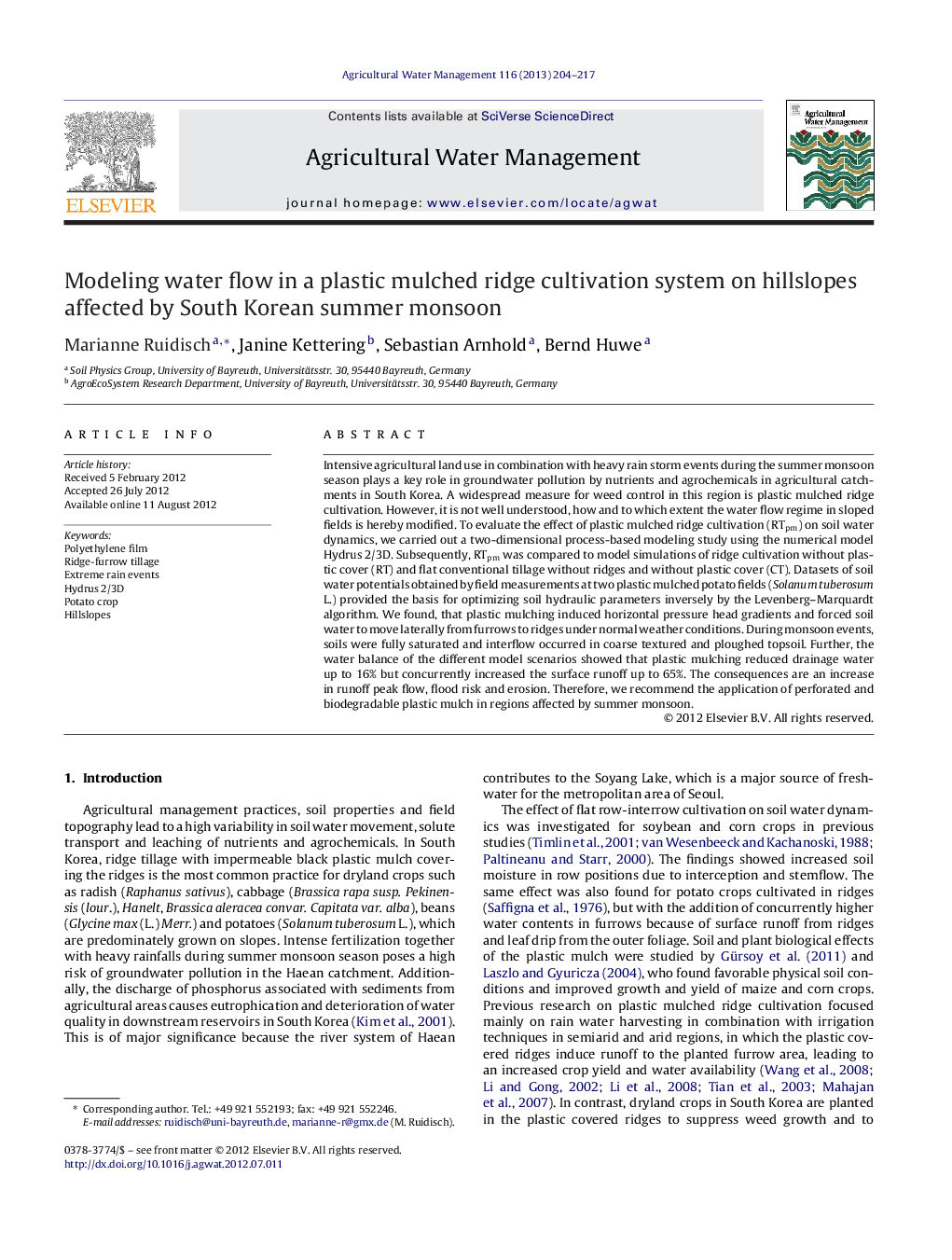| Article ID | Journal | Published Year | Pages | File Type |
|---|---|---|---|---|
| 4478979 | Agricultural Water Management | 2013 | 14 Pages |
Intensive agricultural land use in combination with heavy rain storm events during the summer monsoon season plays a key role in groundwater pollution by nutrients and agrochemicals in agricultural catchments in South Korea. A widespread measure for weed control in this region is plastic mulched ridge cultivation. However, it is not well understood, how and to which extent the water flow regime in sloped fields is hereby modified. To evaluate the effect of plastic mulched ridge cultivation (RTpm) on soil water dynamics, we carried out a two-dimensional process-based modeling study using the numerical model Hydrus 2/3D. Subsequently, RTpm was compared to model simulations of ridge cultivation without plastic cover (RT) and flat conventional tillage without ridges and without plastic cover (CT). Datasets of soil water potentials obtained by field measurements at two plastic mulched potato fields (Solanum tuberosum L.) provided the basis for optimizing soil hydraulic parameters inversely by the Levenberg–Marquardt algorithm. We found, that plastic mulching induced horizontal pressure head gradients and forced soil water to move laterally from furrows to ridges under normal weather conditions. During monsoon events, soils were fully saturated and interflow occurred in coarse textured and ploughed topsoil. Further, the water balance of the different model scenarios showed that plastic mulching reduced drainage water up to 16% but concurrently increased the surface runoff up to 65%. The consequences are an increase in runoff peak flow, flood risk and erosion. Therefore, we recommend the application of perforated and biodegradable plastic mulch in regions affected by summer monsoon.
► Plastic mulching induces horizontal water movement from furrows to ridges. ► Interflow occurs in coarse textured and ploughed topsoil during monsoon events. ► Plastic mulching reduces drainage water up to 16%. ► Plastic mulching increases surface runoff up to 70%. ► We recommend to apply perforated and biodegradable plastic mulch.
